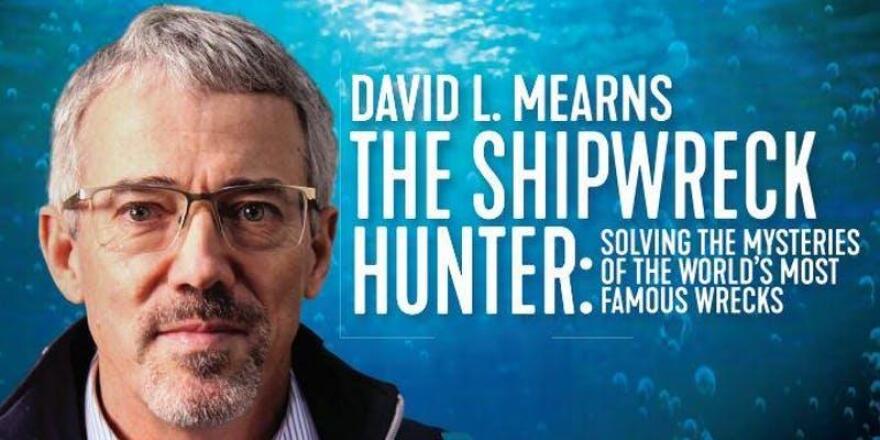Portions of this story were originally published May 6, 2019.
In 1986, David Mearns received his Master’s degree in Marine Geology from the University of South Florida College of Marine Science.
Since then, he's become one of the world's most renowned shipwreck hunters, with 25 discoveries and three world records, including one for the deepest shipwreck ever found.
Mearns returned to St. Petersburg earlier this year to share stories of adventure and discovery at the Mahaffey Theater.
Speaking to University Beat a few days before his appearance, Mearns said, while finding a historic wreck is fulfilling, so is the work that goes into the discovery.
"You can also achieve the same feeling and same sense of achievement and satisfaction in the planning phases, or specifically in the research phases, when you're in archives are looking for historical information that is the pointer to where the shipwreck is,” he said. “I mean, that's the first law of shipwreck hunting…you have to search in the right place.”
And that research is extremely important, as it takes up a bulk of Mearns’ time.
“Most of my work, 10 months out of the year, is in libraries and reading books and reading archives, and only two months of the year, we're lucky enough to be able to go to see and do the exciting bit,” he said.
Mearns has discovered 25 shipwrecks. Among his most well-known discoveries are those of the British World War II warship, the H.M.S Hood, and a ship from Vasco da Gama's fleet that sank in 1503—believed to be the oldest colonial vessel from Europe’s Age of Discovery to ever be found.
“Because it's so old, we're allowed to actually recover the artifacts (from that ship) to be able to put them in a museum,” said Mearns. “This is not treasure hunting—this is archaeological research to put it in (a) museum.”
“You can't beat finding a 500-year-old gold coin, or a 500 year-old-bell, or a 500-year-old astrolabe, which is the only one in the world of that age. This is a very cool thing,” he said.
And Mearns' advice for people considering getting into a similar career is to follow their passion.
"That's what makes you good at what you do. I think there's no career pathway to become a shipwreck hunter, there's no career pathway for any of this. You have to set your own course and find like-minded people to do projects with...get some successes under your belt and from there you move on to bigger and better things."




